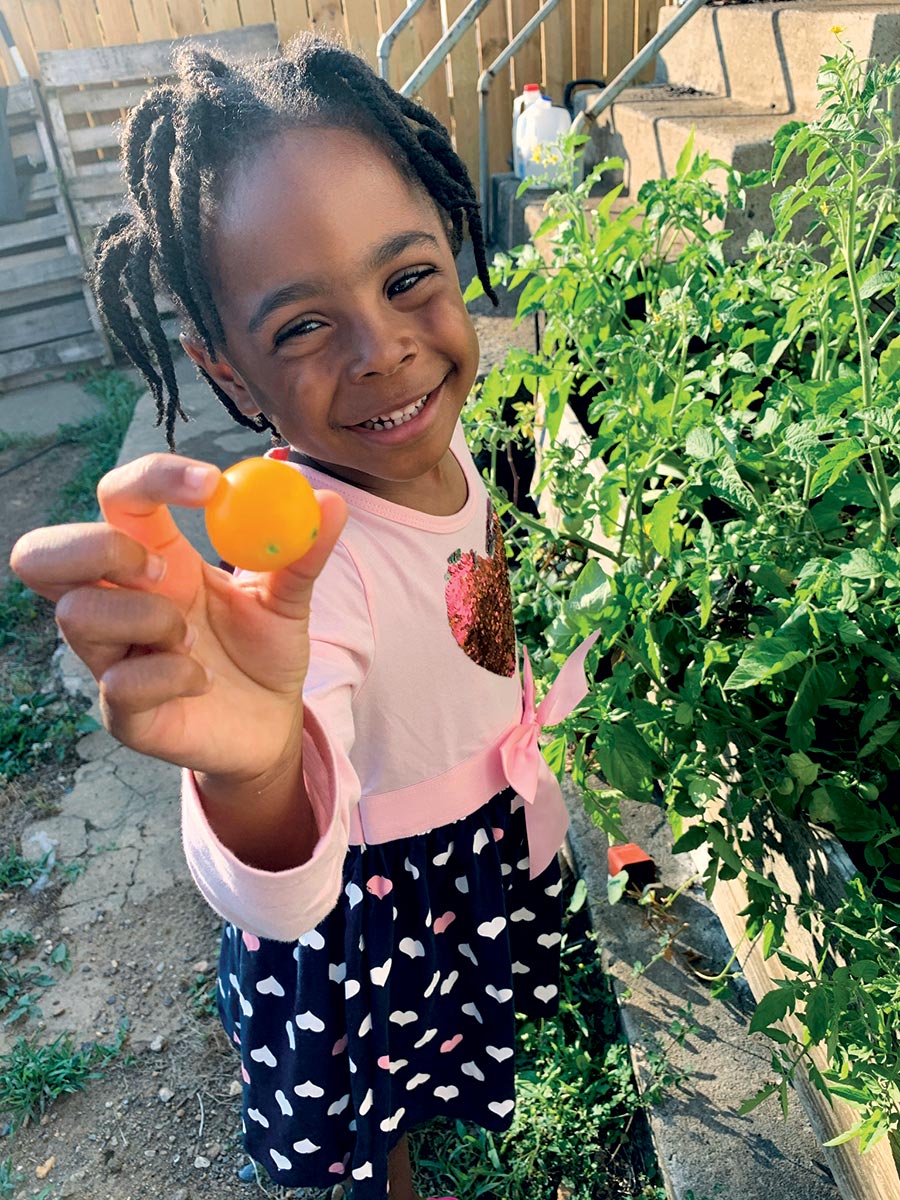Veronica Moore of Brown Skin Plant Mama has spread her passion for plants to Lehigh Valley schools with a new nonprofit: Plant Therapy for Kids! Here's her insight on how young people can benefit from the wonder and wisdom of growing things.

That Flora Aura
Horticultural therapy is nothing new—we know that being in nature and even around the color green has a soothing and restorative effect. Plants in our care invite us to touch their leaves, delve into their soil, notice their needs and cycles. “People think of mindfulness and they think yoga, meditation, journaling,” Moore says, “but there is a physical, emotional and spiritual response to taking care of plants, too.”
While she was stuck at home, unable to play with friends during the pandemic, Moore's daughter, Hunter, turned her attention to the plants her mother tends, from the indoor jungle to the backyard garden, and started to connect to their care. Even in an uncertain world, plants keep growing.
YOU Get a Plant, and YOU Get a Plant
When Hunter started at The Swain School last September, Moore wanted to share the joy her daughter had found in their plants, so she donated small, easy-growing varieties to her pre-K class. “Hunter got attached to plants during the pandemic,” Moore explained to other parents in their Facebook group. “Maybe they'll help your kids with experiences of transition, too.”
The response from both parents and students was wildly enthusiastic, and now Moore's Plant Therapy for Kids has become a nonprofit bringing plants to students around the Valley. It's easy to become a sponsor or invite the program to your child's school at Moore's website.
Leaf Lessons
Young people get so much more than calming vibes from interaction with plants. “It's a way to teach transferable and adaptable skills,” Moore says. “A plant gives an opportunity to celebrate and have something to look forward to, to develop determination, perseverance, persistence, dealing with hardship and failure. Sometimes plants die and we have to tweak our care.”
Through caring for plants, kids learn that gentle patience pays off in the vibrant unfurling of new leaves, the plumping of sun-ripened strawberries or the excitement of a cat offered homegrown catnip. “There's a lot we learn from things that don't verbally talk back to us,” Moore points out. “Plants show their needs in their own ways.”
Our Inseparable Ecosystem
There are so many teachable moments in plant care and gardening, from the moderation required to avoid overwatering to what goes into the food we eat. Kids are inspired and intrigued when they can see things in stages: watching a seed go into a pot of soil, become a sprout and start to develop.
“We talk about what the plant needs to grow strong,” Moore says, “and how we need water, light, care and patience just like the plants do. It's inevitable that kids will be able to see themselves in these conversations.”
Hunter learned to recognize when the crops in their garden were ready to harvest, witnessing the entire life cycle of some of her favorite foods. “Hunter loves vegetables,” Moore says, “and she knows that they don't just magically appear in the store.” Making the connection between plants and food gives greater awareness of how tied our health is to the health of the land and water.

Try It at Home
To bring plant therapy into your own child's life, start with an easy and resilient plant, like the pothos or heart-leaf philodendron. They're quick to tell you with visible signs when they need to be watered. “I let them go limp between waterings,” Moore says. It's fun to see their leaves perk up in response.
These plants also propagate easily, so your family might enjoy taking clippings to put in water. Watch the roots grow and start a whole new plant!
If you'd like to start an edible garden, tomatoes and peppers are notoriously easy-going and fast growing. A starter plant is a good shortcut this late in the season, and container gardening makes things easy if you don't have a big yard or a garden bed.
Gardening builds awareness of the cycling seasons and the necessity of experimenting until we get things right. If you're really adventurous and want to start with seeds, this time of year is right for planting cold crops like carrots, beets and cabbage.
There's no age limit on discovering a love for leafy things!















